#Frankfurter Allgemeine Zeitung
Text
Can your stories help other outsiders?
If anyone gets anything from my work, it's the realisation that it's nice not to be accepted by the norm. After all, the majority is not always right. At the same time, I work in an industry where I have to accept that the majority is right. Because only when many people see a film of mine is the film considered successful.
[...]
You have always maintained your own style, never deviated from your course. If you were offered a Hollywood blockbuster, say: the new James Bond film - how would you react?
I have the greatest admiration for the producer Barbara Broccoli. Together with her brother, she is the soul and skeleton of Bond. I have great sympathy for the fact that a Bond film has to be told and shot in a certain way, where a filmmaker does not have absolute control over his work. But that, for me, is a no-go. However, in the unlikely event that someone suggests something that I might be interested in and at the same time guarantees me control, I would like to try it.
Who would be your Bond then? A man, a woman?
I haven't thought about it yet. Maybe... Tilda Swinton.
What stimulates your thoughts, your productivity?
My melancholy. That's always been the case. I remember parties I was invited to when I was 14. I always chose the couch or the back of the room to watch the others celebrate. I never really participated. I found it fascinating to remove myself mentally, but at the same time perceive the actual physical existence - which made me a voyeur. Emotional voyeurism is an important source for me. I could stop reading books, I could stop listening to music - as long as I have my eyes and I see, I am well taken care of.
#now i'm not much into bond but would love to see what luca would make out of it#luca guadagnino#bones and all#frankfurter allgemeine zeitung#november 2022#2022
16 notes
·
View notes
Text
Carolin Amlinger schreibt eine großartige Rezension über den Roman ERDLING in der FAZ. Mein Lieblingswort daraus: verhegelt. Die Deutschen seien verhegelt. Hahaha!
0 notes
Text
Φωτιές Μητσοτάκη: Άρθρο κόλαφος της γερμανικής FAZ - Διακοπές στη Μεσόγειο με κάθε τίμημα;
Ο γερμανικός Τύπος για τα ελλιπή μέτρα πυροπροστασίας στη Ρόδο, τις αποζημιώσεις για τις ακυρώσεις κρατήσεων, αλλά και τη στροφή προς τις βιολογικές καλλιέργειες στην Αργολίδα.
Με αφορμή τις καταστροφικές πυρκαγιές που έπληξαν την Ελλάδα και ιδίως τη Ρόδο, η Frankfurter Allgemeine Zeitung διερωτάται: «είναι ακόμα αποδεκτή η μορφή μαζικού τουρισμού που υπάρχει εκεί, με τα συγκροτήματα…
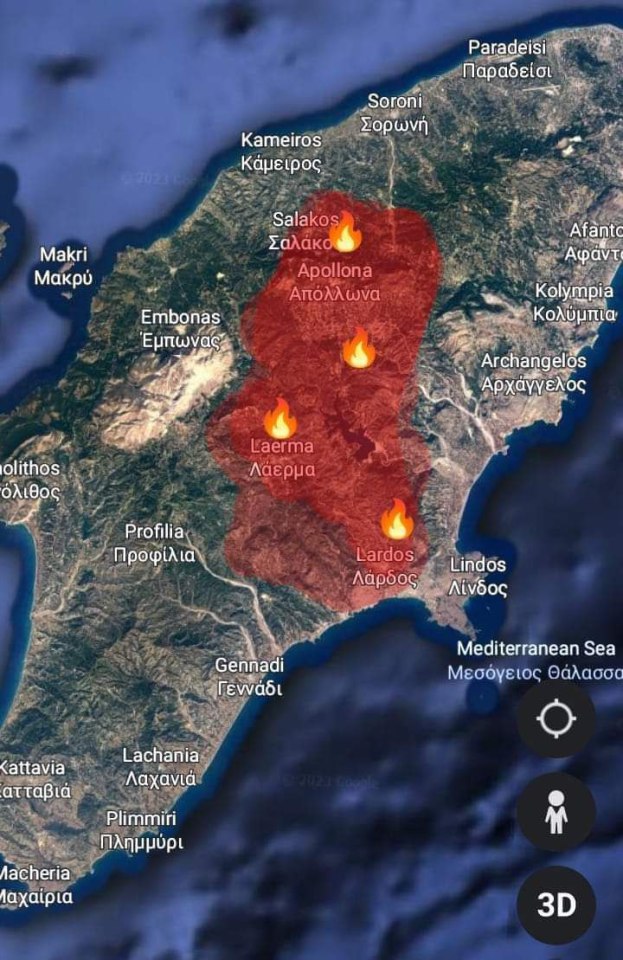
View On WordPress
0 notes
Text
Φωτιές Μητσοτάκη: Άρθρο κόλαφος της γερμανικής FAZ - Διακοπές στη Μεσόγειο με κάθε τίμημα;
Ο γερμανικός Τύπος για τα ελλιπή μέτρα πυροπροστασίας στη Ρόδο, τις αποζημιώσεις για τις ακυρώσεις κρατήσεων, αλλά και τη στροφή προς τις βιολογικές καλλιέργειες στην Αργολίδα.
Με αφορμή τις καταστροφικές πυρκαγιές που έπληξαν την Ελλάδα και ιδίως τη Ρόδο, η Frankfurter Allgemeine Zeitung διερωτάται: «είναι ακόμα αποδεκτή η μορφή μαζικού τουρισμού που υπάρχει εκεί, με τα συγκροτήματα…
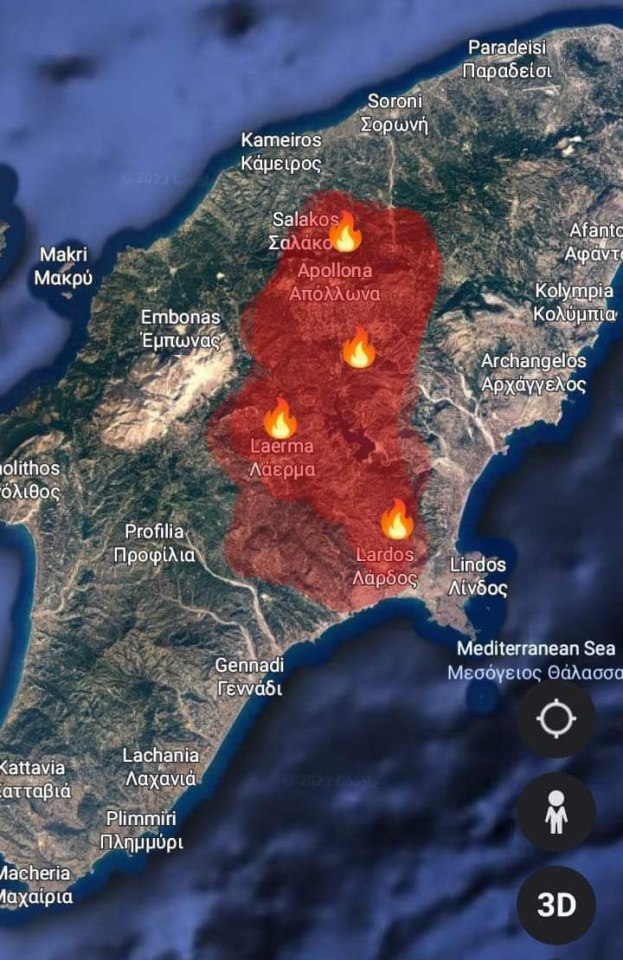
View On WordPress
0 notes
Text
Φωτιές Μητσοτάκη: Άρθρο κόλαφος της γερμανικής FAZ - Διακοπές στη Μεσόγειο με κάθε τίμημα;
Ο γερμανικός Τύπος για τα ελλιπή μέτρα πυροπροστασίας στη Ρόδο, τις αποζημιώσεις για τις ακυρώσεις κρατήσεων, αλλά και τη στροφή προς τις βιολογικές καλλιέργειες στην Αργολίδα.
Με αφορμή τις καταστροφικές πυρκαγιές που έπληξαν την Ελλάδα και ιδίως τη Ρόδο, η Frankfurter Allgemeine Zeitung διερωτάται: «είναι ακόμα αποδεκτή η μορφή μαζικού τουρισμού που υπάρχει εκεί, με τα συγκροτήματα…
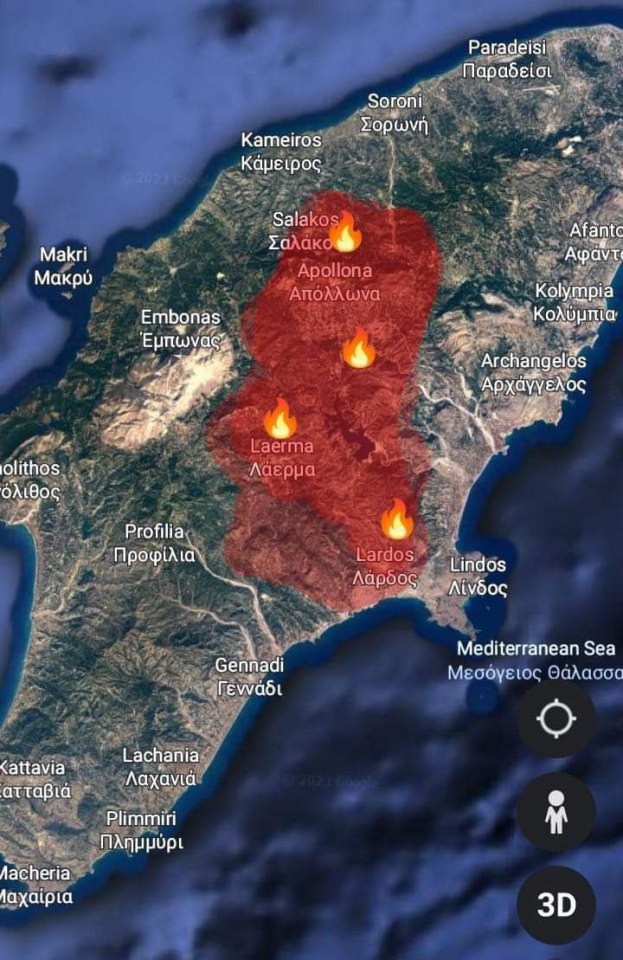
View On WordPress
0 notes
Text
Φωτιές Μητσοτάκη: Άρθρο κόλαφος της γερμανικής FAZ - Διακοπές στη Μεσόγειο με κάθε τίμημα;
Ο γερμανικός Τύπος για τα ελλιπή μέτρα πυροπροστασίας στη Ρόδο, τις αποζημιώσεις για τις ακυρώσεις κρατήσεων, αλλά και τη στροφή προς τις βιολογικές καλλιέργειες στην Αργολίδα.
Με αφορμή τις καταστροφικές πυρκαγιές που έπληξαν την Ελλάδα και ιδίως τη Ρόδο, η Frankfurter Allgemeine Zeitung διερωτάται: «είναι ακόμα αποδεκτή η μορφή μαζικού τουρισμού που υπάρχει εκεί, με τα συγκροτήματα…
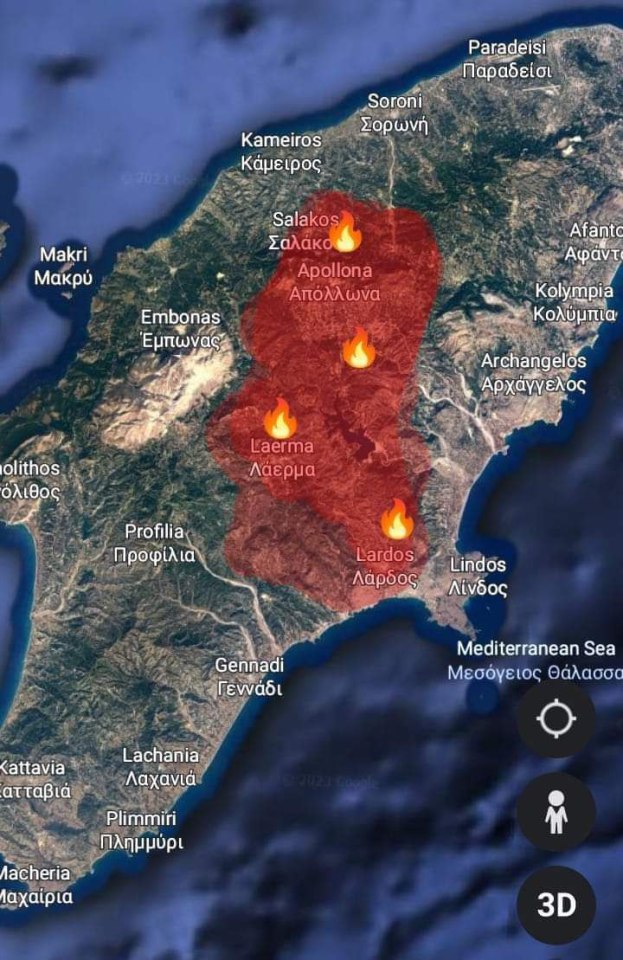
View On WordPress
0 notes
Text
Φωτιές Μητσοτάκη: Άρθρο κόλαφος της γερμανικής FAZ - Διακοπές στη Μεσόγειο με κάθε τίμημα;
Ο γερμανικός Τύπος για τα ελλιπή μέτρα πυροπροστασίας στη Ρόδο, τις αποζημιώσεις για τις ακυρώσεις κρατήσεων, αλλά και τη στροφή προς τις βιολογικές καλλιέργειες στην Αργολίδα.
Με αφορμή τις καταστροφικές πυρκαγιές που έπληξαν την Ελλάδα και ιδίως τη Ρόδο, η Frankfurter Allgemeine Zeitung διερωτάται: «είναι ακόμα αποδεκτή η μορφή μαζικού τουρισμού που υπάρχει εκεί, με τα συγκροτήματα…
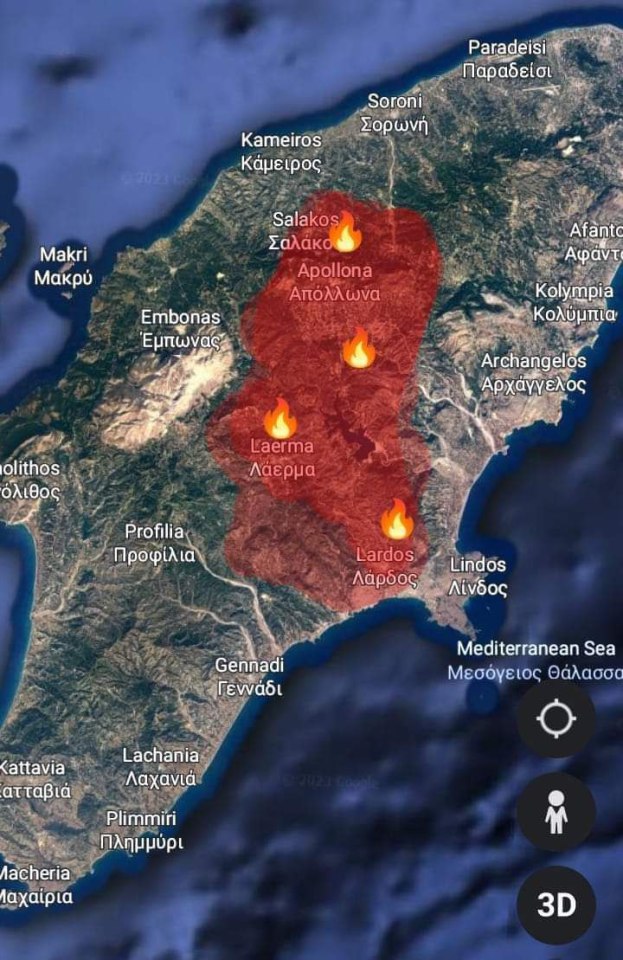
View On WordPress
0 notes
Text
Wie eine Stadt sich neu erfand
"Wie eine Stadt sich neu erfand." Eindrücke aus #Nordhorn
Vor knapp drei Wochen zeigte Nordhorns Bürgermeister Thomas Berling (SPD, Foto lks) unserer Ratsfraktion “Die BürgerNahen” die Nachbarstadt Nordhorn an der Vechte. In Erinnerung ist mir eine ungewöhnliche und geradezu entschleunigte Stadtführung per Boot über die Kanäle rund um das Zentrum und über den Vechtesee mit einem sachkundigen wie uneitlen Gastgeber; Berling ist seit 11 Jahren Nordhorner…

View On WordPress
#Die BürgerNahen#Frankfurter Allgemeine Zeitung#Gerhard Kock#Nino#Nordhorn#Povel#Rawe#Stadtführung#Thomas Berling
0 notes
Text
Frankfurter Allgemeine Zeitung : Ulaskom BiH u EU Pelješki most nikome ne bi trebao
Frankfurter Allgemeine Zeitung : Ulaskom BiH u EU Pelješki most nikome ne bi trebao
Činjenica da BiH ima izlaz na Jadran povezana je s vremenima kada su se u ovom dijelu Evrope sučeljavali Republika Venecija i Osmanlijsko carstvo. Između njih je bio mali grad-republika Raguza (Dubrovnik), koja se prije svega plašila Venecije. Kako bi se zaštitili od Venecije, lukavi dubrovački diplomati pribjegli su jednom rješenju.
Ustupili su dio zemlje na sjevernom rubu svog teritorija…

View On WordPress
0 notes
Text
In Subcontractors of Guilt: Holocaust Memory and Muslim Belonging in Postwar Germany, Esra Özyürek describes the way that German politicians, officials and journalists, now that the far right is in the ascendant, have been cranking up the old mechanism of sanitising Germany by demonising Muslims. In December 2022, German police foiled a coup attempt by Reichsbürger, an extremist group with more than twenty thousand members, which was planning an assault on the Bundestag. Alternative für Deutschland, which has neo-Nazi affiliations, has become the country’s second most popular party, partly in response to economic mismanagement by the coalition led by Olaf Scholz. Yet despite the undisguised antisemitism of even mainstream politicians such as Hubert Aiwanger, the deputy minister-president of Bavaria, ‘white Christian-background Germans’ see themselves ‘as having reached their destination of redemption and re-democratisation’, according to Özyürek. The ‘general German social problem of antisemitism’ is projected onto a minority of Arab immigrants, who are then further stigmatised as ‘the most unrepentant antisemites’ in need of ‘additional education and disciplining’.
...
Netanyahu, too, has learned from Germany’s postwar efforts at whitewashing. In 2015 he claimed that the Grand Mufti of Jerusalem had persuaded Hitler to murder rather than simply expel the Jews. Three years later, after initially criticising a move by the Law and Justice Party in Poland to criminalise references to Polish collaboration, he endorsed the law making such references punishable by a fine. He has since legitimised Shoah revisionism in Lithuania and Hungary, commending both countries for their valiant struggle against antisemitism. (Efraim Zuroff, a historian who has helped bring many former Nazis to trial, compared this to ‘praising the Ku Klux Klan for improving racial relations in the South’.) More recently, Netanyahu accompanied Elon Musk to one of the kibbutzim targeted by Hamas, just days after Musk tweeted in support of an antisemitic conspiracy theory. Since 7 October, he has seemed to be reading from the Eichmann trial script. He regularly announces that he is fighting the ‘new Nazis’ in Gaza in order to save ‘Western civilisation’, while others in his cohort of Jewish supremacists keep up a supporting chorus. The people of Gaza are ‘subhuman’, ‘animals’, ‘Nazis’.
...
In a more unnerving illustration of the postwar German-Israeli symbiosis, the German health minister, Karl Lauterbach, approvingly retweeted a video in which Douglas Murray, a mouthpiece of the English far right, claims that the Nazis were more decent than Hamas. ‘Watch and listen,’ retweeted Karin Prien, deputy chair of the Christian Democratic Union and education minister for Schleswig-Holstein. ‘This is great,’ Jan Fleischhauer, a former contributing editor at Der Spiegel, wrote. ‘Really great,’ echoed Veronika Grimm, a member of the German Council of Economic Experts. The Süddeutsche Zeitung, which in 2021 ‘outed’ five Lebanese and Palestinian journalists at Deutsche Welle as antisemites, with equally flimsy evidence exposed the Indian poet and art historian Ranjit Hoskote as a calumniator of Jews for comparing Zionism with Hindu nationalism. Die Zeit alerted German readers to another moral outrage: ‘Greta Thunberg openly sympathises with the Palestinians.’ An open letter from Adam Tooze, Samuel Moyn and other academics criticising Jürgen Habermas’s statement in support of Israel’s actions provoked an editor at the Frankfurter Allgemeine Zeitung to claim that Jews have an ‘enemy’ at universities in the form of postcolonial studies. Der Spiegel ran a cover picture of Scholz alongside his claim that ‘we need to deport on a grand scale again.’
...
Susan Neiman, who wrote admiringly of Vergangenheitsbewältigung in Learning from the Germans (2020), now says she has changed her mind. ‘German historical reckoning has gone haywire,’ she wrote in October. ‘This philosemitic fury ... has been used to attack Jews in Germany.’ In Never Again: Germans and Genocide after the Holocaust, which examines the German response to mass killings in Cambodia, Rwanda and the Balkans, Andrew Port suggests that their ‘otherwise admirable reckoning with the Holocaust may have unwittingly desensitised Germans. The conviction that they had left the rabid racism of their forebears far behind them may have paradoxically allowed for the unabashed expression of different forms of racism.’
(source)
41 notes
·
View notes
Text
A former editor for the German main daily newspaper, Frankfurter Allgemeine Zeitung (FAZ), Dr. Udo Ulfkotte became nationally renowned in dissident circles for his 2014 book Journalists for Hire: How the CIA Buys the News, originally published in German, which went through multiple translations.
The book relays Ulfkotte’s experience with how the CIA and German Intelligence (BND) bribe journalists to write articles free of truth and facts, and with a decidedly pro-Western, pro-NATO bent or, in other words, propaganda.
One of Ulfkotte’s formative professional experiences was as a war correspondent during the Iran-Iraq War (1980-1988), where the Iraqis were considered to be “the good guys”—because they were serving Western interests in confronting Iran, whose Islamic regime had toppled a long-standing U.S. client, the Shah, in a 1979 revolution.
Iraqi war crimes under Saddam Hussein were covered up along with Washington’s interests in trying to weaken and divide two aspiring Middle Eastern powers so the U.S. could dominate the region and exploit its oil resources.
When he first arrived in Baghdad, Ulfkotte was a little scared. He did not have any experience as a war correspondent. The Iraqi Army quickly sent him off to the front line; the bus was full of loud, experienced war correspondents from prestigious media such as BBC, and Udo was just a miserable rookie.
The first thing that struck him as odd was that everybody was carrying canisters with them. He got upset that very moment and he thought to himself: “Ooops, if the bus gets stuck far from the petrol station, all of them chip in by filling in some petrol into the engine so Udo decided that in the future he would have to carry a canister as well.”
They were on a bus for hours on end riding through the desert. At 20 to 30 kilometers from the border, there was literally nothing there. There was no war whatsoever. There were armed vehicles and tanks long since burned to ash. The reporters got off the bus and sprayed the contents of the canisters all over the vehicles. The Iraqi soldiers were there with them with the machine guns: “Imagine that, tanks in the desert, burned to ash a long time ago, set on fire only now. The clouds of smoke all around. And the reporters positioning their cameras.”
What he witnessed was flame and clouds of smoke behind them, and the Iraqis running around in front of the cameras all the time with machine guns in their arms and scowling military looks in their eyes. Udo mustered up courage and asked one reporter: “I understand. The photos are brilliant, but why do they keep stooping and ducking down?”
The man replied: “Simple. In the audio played in the background one could hear machine guns, and it will sound very good back home.”
Udo kept thinking all the way home. “Young man, you did not see a war at all. You were by the campfire. What are you going to write about?”
Yes, that is a problem for a rookie working for a news agency. Performances are mainly adapted to suit the media needs. It is necessary that one “fits in” with the other seasoned professionals and concoct stories out of thin air that those in positions of authority want the people to hear—not ones that actually exist.
When Udo got back to Baghdad, there were no mobile phones; they were waiting in the Rashid Hotel for hours at times for the international line. He first phoned his mother, not his employer. He was desperate. He did not know what to do. At that point his mother started crying over the phone: “My boy! You are alive!” Udo thought to himself: “What do you mean? Is everything all right? My dear boy! We thought….What is happening, Mother? We saw on TV what happened around you.”
The TV channel had already sent back the fake stories and he tried to calm his mother down, trying to explain that it did not happen the way she believed it did. She thought Udo lost his mind. Udo said in his book that he would finish there, because he was not there to tell us a satire. He only wanted to say that this was his first experience with the truth in journalism and war correspondence. Basically, he was utterly shocked with the first contact he made. But, unfortunately, that was not an isolated case.[1]
In Udo’s naïve mind, war was a place where a reporter could report on horrifying events and help the public to empathize with the victims of war and expose the hidden political machinations behind it.
Instead, he found himself forced to write fake stories from far away from the front lines and to manufacture propaganda to induce consent among the public.
The ones manufacturing the stories were associated with the intelligence agencies whose job it is to deceive the public.
By serving as a correspondent in the Middle East, Ulfkotte was able to meet agents from the CIA, British M16, the Israeli MOSSAD and the German intelligence agency Bundesnachrichtungendienst (BND).
His editors used to readily cooperate in such operations of collating intelligence information, which the reporters would dutifully transcribe for the public back home.
The skill of unofficial reporting is when a reporter essentially works for the CIA and he or she is not employed in an official role, Ulfkotte explains.
Both sides hugely benefit from their partnership and at the same time both sides can deny their relationship. The CIA would have found young reporters and they would then be their mentors. All of a sudden many doors would open for them, they would be granted awards and before they knew it, their mentors (read: paymasters) would have owned their whole careers.[2]
This is basically the name of the game. This is how it all works. Ulfkotte admitted with regret that he published articles in his own name that were actually written by CIA agents and other intelligence services, particularly the German secret services.
Ulfkotte went on to say that he had close contact with the German intelligence service, BND. Two persons from BND were regularly coming to the newspaper office where he worked. On occasion, he says, he was not only given the report but that the BND wrote the articles, which were published in the newspapers under Udo’s name.
Udo was asked by an interviewer if he could document what he was saying and he responded yes, that he could.
“I can say that this and that article with my text in the papers was written by the intelligence services because I couldn’t have possibly known what was written in it. I couldn’t have possibly known what was there in a cave in Libya, what secret thing in one particular place, what is being built there. That is what BND wanted to publish (using my name),” writes Udo.[3]
It was not like this only in FAZ. This was in other media as well.
“If we had rule of law, there would be an investigative committee to investigate dubious claims. Political parties would be outraged and rise [against the injustice of the fake news], regardless of whether they were the political left, the political right or the center and they would say: ‘What is this guy Ulfkotte saying? And he claims that he can document everything? This needs to be investigated.’”[4]
Udo continued: “This is still a common thing. I know some colleagues of mine who still maintain a close contact with the intelligence services. I would feel very good if there was an investigative committee but this obviously is not going to happen, because it is in nobody’s interest to do so. Because in that case the general public would understand to what extent politics, media and secret services are closely connected in this country.”[5] And in this world!
When Ulfkotte had a close encounter with his own conscience—and if one reads Dostoyevsky, they know that there is no person in the world who does not wrestle with their own moral dilemmas—he decided to elaborate on his experiences. In doing so, he provided significant insight into contemporary media and of the society that we live in.
Almost everybody knows but only a few dare speak about what Udo said.
He wrote: “I was in close contact with some European media or big private media companies—you cannot write or say what you feel like and what your views are necessarily. I can tell you that what I am saying here is what I have experienced everywhere. There are clear directives and everybody knows that one cannot publish what they want in the newspapers owned by Springer such as Bild or Welt—for instance the articles critical of Israel. There is no way you can do that there! You have signed an agreement that you will not challenge the question of the existence of a country of Israel or the Israeli point of view. These directives exist in all big media companies.”[6]
Ulfkotte continued: “If you do not wish to remain stuck in the lower corporate levels but you would rather travel with the chancellor, ministers, president or with the politicians, in the airplanes which belong to the government, in that case you have to adhere to certain rules. I have learnt that rather quickly.
What we consider as free journalism is a rather orderly and orchestrated thing to its every detail. But for your superiors, it is vitally important that that is not viewed as censorship and limiting of free reporting or whichever (bland and vague) terms and phrases they tend to use.
I soon realized that when I was tasked to accompany Helmut Kohl, the then German Chancellor, in my capacity of a journalist, you are not invited to do this job because your name is Udo Ulfkotte but because you work for Frankfurter Allgemeine Zeitung.”[7]
Udo went on to write:
“In such a case, one is expected to deliver a certain kind of reporting. Which one? Forget about my news agency. This is to do with all of them in general. At the outset of the journey, a reporter is given a set of directions as to what to ask, how to communicate. Normally, you are not told what to say and ask, to write something in this way or that way but you are painfully aware that if you do not do that in such and such a way, you will not be invited next time. Your media company will be called to tell them that you are not wanted. And then you are out!
Those in charge of the cooperation with the media are the non-government ‘think tanks,’ those foundations and organizations which arguably are ‘independent’ in the same way that independent journalists supposedly are.
I am often asked where are those people who ‘pull all the strings,’ so that everything is told in a similar way? Look at those people who sit in the huge transoceanic think-tanks and foundations, for instance, look at the foundation Atlantic Bridge, and in all such organizations. And how is one supposed to influence others there?
I know from personal experience. Let us not speak only theoretically. The German Marshall Fund invited me as their colleague to visit the USA for six weeks earlier on. All expenses paid. This think-tank had close contact with the CIA, and I gained easy access to all the U.S. politicians, to all of them I was eager to be in contact with.
Above all, they literally showered me with gifts.”[8]
The journalists and the news agencies which are supposed to be, if one follows the logic of their role in a democratic society and its laws and constitutions, and then code of ethics and professional conduct, to take care of general interests, find themselves facing a challenging situation—take something for yourself or give something from within yourself for something distant and uncertain. A human being cannot resist small things that the powers that be are able to provide for them profusely.
“Media is just a word that has come to mean bad journalism.” – Graham Greene
All that is the name of the game. When The German Marshall Fund took Ulfkotte to the U.S., they told him that they knew he took a diving course in Oman. The CIA knew with utmost precision. They even gave him diving equipment through his contact in Oman.
During these six weeks he got an invitation from the governor of Oklahoma. He went there. There was a small ceremony and he received honorary U.S. citizenship. He became an honorable citizen of the USA. It was written in his certificate that from then on he would only write nice things in his reports.
The English version of the book by Udo Ulfkotte, The Bought Journalists, i.e., Journalists for Hire: How the CIA Buys the News, appeared on May 15, 2017, but by it having been published, the whole story surrounding it was not over.
According to the research by Off Guardian, Tayen Lane Publishing has since removed all references for this book from its website. Amazon UK indicates that the title is currently unavailable, with the possibility of the purchase from independent distributors, which offer used copies for an exorbitant amount of a thousand U.S. dollars per copy.
At least a 2019 version of the book, Presstitutes Embedded in the Pay of the CIA: A Confession from the Profession is available for a reasonable price on amazon and goodreads.com at least in the U.S. Though you won’t find the book on display in Barnes & Noble or other big book shops as the powerful people who rule the world don’t want its content being widely read.
Regrettably, Udo Ulfkotte died of a heart attack at the age of 57 (Tracy, 2018).
After reading his books and writings, one wonders: “Is there anybody in the mainstream media who has not worked for the CIA?”
“In America, the president reigns for four years, and journalism governs forever and ever.” – Oscar Wilde.
Edward Snowden and Julian Assange are both world famous, with the former having much more luck by moving to Russia. Udo Ulfkotte, however, is almost completely out of the public gaze, although he was a journalist and whistleblower in the media industry, possibly as important as both.
One might think that this comes across as paradoxical. Yet it only means that the public does not recognize profound relations in the media industry.
Ulfkotte was a renowned European journalist with a Ph.D. in the social sciences and an immigration reform activist, among other things. When he wrote Gekaufte Journalisten: Wie Politiker, Geheimdienste und Hochfinanz Deutschlands Massenmedien lenken (the translation of its original title is Bought Journalists [alternatively, a translation of the title more to the point is Journalists for Hire]: How Politicians, Secret Services and High Finance Steer German’s Mass Media), he became one of the most significant whistleblowers in recent history.
James Tracy pointed out in Off Guardian that Ulfkotte showed how the Western secret services took over the central place in the Western journalism.” According to Tracey, Ulfkotte was able to witness all that with credibility and his personal and professional integrity because he was working in top echelons of the mainstream media profession for years.
Tracy added that the presence of the secret (intelligence) services is neither a chance encounter nor is it random. Their recruitment techniques are always similar in every corner of the globe.
#udo ulfkotte#cia#bnd#imperialism#propaganda#MI6#mossad#iran iraq war#journalism#media corporations#mainstream media
60 notes
·
View notes
Text
Fridtjof Küchemann und ich sprachen eine gute Stunde über den ERDLING. Ich lese sogar ein Kapitel daraus. Das alles ist im Bücher-Podcast der FAZ erschienen.
#interview#resonanz#erdling#podcast#Bücher-Podcast#FAZ#Frankfurter Allgemeine Zeitung#Fridtjof Küchemann
0 notes
Text
FAZ: H εποχή της μονοκομματικής διακυβέρνησης για τον Μητσοτάκη μπορεί σύντομα να παρέλθει
FAZ: Πιθανότερη από ποτέ μία αλλαγή σκυτάλης στην Ελλάδα.
Σε εκτενές δημοσίευμά της, η Frankfurter Allgemeine Zeitung σχολιάζει τη διαμόρφωση του προεκλογικού σκηνικού στην Ελλάδα και την πτώση της δημοτικότητας του Κυριάκου Μητσοτάκη.
«Από τον Ιούλιο του 2019, όταν ανέλαβε την πρωθυπουργία ο Μητσοτάκης, η Νέα Δημοκρατία προηγείτο σαφώς του ΣΥΡΙΖΑ σε όλες τις δημοσκοπήσεις. Κατά ειρωνικό τρόπο,…
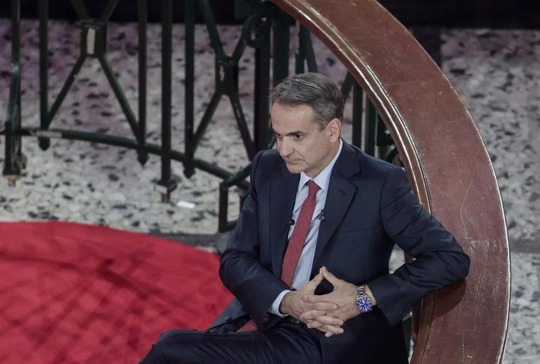
View On WordPress
0 notes
Photo

Photo by Robert Matheu.
“So I thought who will be good [as a co-producer for Cloud Nine]? Someone I really admire and someone who would respect me and my past and not try to turn me into something I’m not. I thought of Jeff Lynne of the Electric Light Orchestra, he’d be fun. If I only knew him… I’d never met him. He’s a very private person, Jeff, he’s one person who I don’t think has done interviews or television, or anything, he’s just very private. Anyway I got a message to him through Dave Edmunds, that I’d like to meet him. And I met Jeff, and over a period of 18 months I got to know him.” - George Harrison, The Globe and Mail, September 1987
“I was in Los Angeles, actually, at the time. Dave Edmunds said to me, just matter-of-fact, ‘Oh, by the way, I forgot to tell you, George Harrison would like you to produce some stuff with him.’ You know, ‘by the way.’ If I could've picked one guy I wanted to work with, it would have been George. I was stunned, really.” - Jeff Lynne, Rolling Stone, October 1987
“George was a very funny guy, very quick-witted […]. He was nobody’s fool, he was always honest. He was just a great guy, you know? Someone who could make ideas into realities, like when we recorded his album ‘Cloud Nine.’ He formed the Traveling Wilburys — that was all George. He had the strength to do that. And we did it and had a lot of fun.
Although he could do anything he wanted, what he really wanted was self-realization. ‘Look inside, that’s where the answer is’ — that was his way of looking at the world.” - Jeff Lynne, translated from Frankfurter Allgemeine Zeitung, November 2002
“George was in such awe of Bob, if somebody came over to a session, he’d open a door and say, 'Look, it’s Bob Dylan.’ Whereas everybody else is opening another door going, 'That’s f------ George Harrison.’ I loved him so much.” - Jeff Lynne, The Telegraph, November 8, 2015 (x)
#Jeff Lynne#George Harrison#quote#quotes about George#quotes by george#The Traveling Wilburys#Cloud Nine#et al.#George and Jeff Lynne#George and gardening#harrisonarchive translations#Harrison spirituality#fits queue like a glove
31 notes
·
View notes
Text
Many Jews are now moving to Poland, where they feel safer than in Western Europe, German newspaper Frankfurter Allgemeine Zeitung (FAZ) wrote in a report from Kraków.
In a website article published on Thursday, FAZ claims that this move is strongly influenced by the war in Ukraine and the Hamas October 7 attack on Israel.
“Today, Jews from the post-Auschwitz generation live in Poland,” the newspaper quoted Rabbi Eliezer Gurary, the chief Rabbi of Kraków, as saying. “Kraków has become the heart of this new normality. Kraków is unique; it is multicultural,” the rabbi added.
“It’s not like in Germany, where people are searched with a metal detector at the entrance to the synagogue,” he continued. “It’s friendlier here,” he stressed.
Kraków also has a Jewish Community Centre (JCC), inaugurated in 2008 by Britain’s then prince and now King Charles. The JCC offers space to anyone who “identifies as a Jew in any way – whether Orthodox, liberal, religious, or secular.”
JCC director Jonathan Ornstein, who comes from a Jewish family in New York, also praised the safe environment for Jews in Poland.
“It is now easier and safer to be a Jew in Poland than in any Western European country,” Ornstein said. He added that it continues to be “a great task to convey this fact to the Jewish community, which still perceives Poland from the perspective of the Holocaust.”
“A process has begun in Poland and it will intensify,” he continued. “Israelis from Western Europe and Jews from Ukraine will settle here... Poland has for some time been a country with good economic growth and, at the same time, a country that ensures safety for Jews,” Ornstein added.
7 notes
·
View notes
Text
Disappointment, frequently mixed with incomprehension and anger: this has been the most common reaction to Germany within Palestinian civil society in recent weeks. The emotional response stems from the fact that the German government placed itself firmly on the side of Israel after Hamas' terrorist attack on 7 October 2023 and ‒ in the opinion of many Palestinians ‒ adopted a one-sided stance in the process and remains silent on Israeli crimes in the Gaza war.
The feelings of resentment are targeted even more specifically at the institutions of German development co-operation, even though the Federal Ministry for Economic Cooperation and Development (BMZ) announced just a few weeks ago that support will be resumed. Minister Svenja Schulze had suspended this support immediately after 7 October to ensure that no funding from Germany benefits Hamas or other terrorist groups. In a press release dated 13 December, the ministry announced that the review that followed had found no indications of the misuse of funding, adding that "the BMZ's strict safeguards have proven robust."
But this self-praise was only part of the truth. Research conducted by the German broadsheet Frankfurter Allgemeine Zeitung (FAZ) has shown that a significant proportion of Germany's co-operation with Palestinian civil society was quite simply stopped by the BMZ and the Foreign Office. In doing so, the two ministries complied with a long-expressed wish of Israel that had, for a time, led to discord within the German government.
7 notes
·
View notes